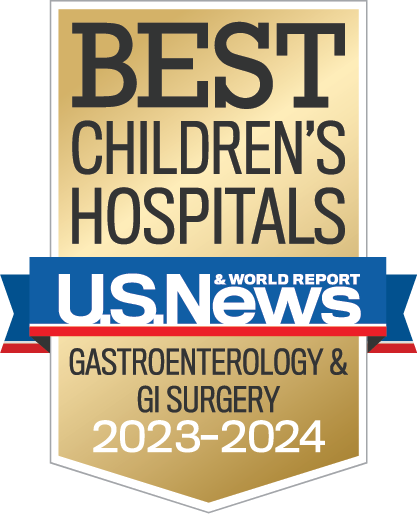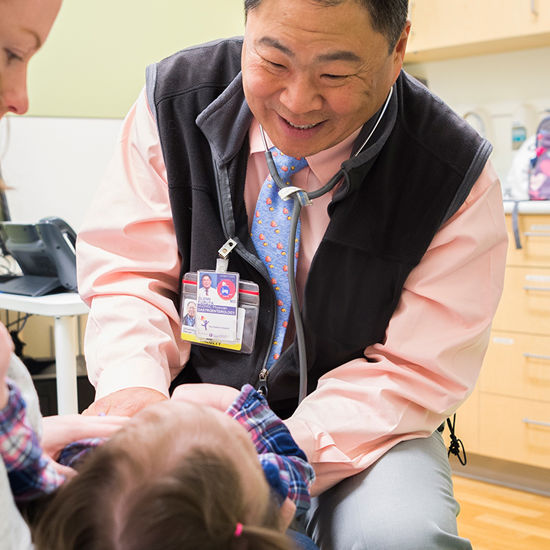- Doctors & Departments
-
Conditions & Advice
- Overview
- Conditions and Symptoms
- ¿Está enfermo su hijo?
- Parent Resources
- The Connection Journey
- Calma Un Bebé Que Llora
- Sports Articles
- Dosage Tables
- Baby Guide
-
Your Visit
- Overview
- Prepare for Your Visit
- Your Overnight Stay
- Send a Cheer Card
- Family and Patient Resources
- Patient Cost Estimate
- Insurance and Financial Resources
- Online Bill Pay
- Medical Records
- Política y procedimientos en el hospital
- Preguntamos Porque Nos Importa
-
Community
- Overview
- Addressing the Youth Mental Health Crisis
- Calendar of Events
- Child Health Advocacy
- Community Health
- Community Partners
- Corporate Relations
- Global Health
- Patient Advocacy
- Patient Stories
- Pediatric Affiliations
- Support Children’s Colorado
- Specialty Outreach Clinics
Your Support Matters
Upcoming Events
Mental Health Town Hall
martes, 23 de abril de 2024Join Children’s Hospital Colorado pediatric experts for a virtual...
-
Research & Innovation
- Overview
- Clinical Trials
- Q: Pediatric Health Advances
- Discoveries and Milestones
- Training and Internships
- Academic Affiliation
- Investigator Resources
- Funding Opportunities
- Center For Innovation
- Support Our Research
- Research Areas

It starts with a Q:
For the latest cutting-edge research, innovative collaborations and remarkable discoveries in child health, read stories from across all our areas of study in Q: Advances and Answers in Pediatric Health.


Crohn's Disease Treatment for Children and Teens
We pioneer and deliver some of the most groundbreaking treatments available for digestive disorders in children of all ages.

Although there isn’t a cure for Crohn’s disease, the Pediatric Inflammatory Bowel Disease Center at Children’s Hospital Colorado offers a variety of treatment options that can reduce symptoms and enhance quality of life. Our multidisciplinary team, which includes board-certified pediatric gastroenterologists, as well as surgeons, psychologists, registered dietitians and more, works to develop individualized treatment plans that provide both physical and emotional care for children and their families living with Crohn’s disease.
Our Center is the only full-service, multidisciplinary inflammatory bowel disease, or IBD, program in the region, and the only one to participate in ImproveCareNow — a community where patients, parents, clinicians and researchers across the country work together to improve the lives of children with IBD.
Crohn’s disease treatment options for kids
The goal of Crohn’s disease treatment is to reduce inflammation in the intestines and minimize or prevent symptoms for an extended period of time, also called remission. Popular treatment methods to encourage remission include medication, diet and surgery.
Medication
Medication is the most common form of Crohn’s disease treatment. It can reduce inflammation, which helps control symptoms like fever and diarrhea. It also allows intestinal tissues to heal and can extend periods of remission. There are several types of medication used to treat Crohn’s disease, and our pediatric IBD specialists help families select the best option for their child.
Nutritional therapy and diet
Children’s Colorado is the only IBD center in the region to offer nutritional therapy as a treatment option for Crohn’s disease. To induce remission, we use a process called exclusive enteral nutrition to provide 90% of needed calories through a soft nasogastric tube. When children use this treatment method for three months or longer, it is often successful and eliminates the need for corticosteroids. We are one of only a few pediatric hospitals in the U.S. able to regularly offer nutritional therapy for kids with Crohn’s disease.
Outside of nutritional therapy, our registered dietitians teach patients and families how to incorporate adequate amounts of protein, fat and carbohydrates, as well as vitamins, minerals and water into their diet. Crohn’s disease can often suppress appetite while increasing the body’s energy needs, which is why a Crohn’s disease treatment diet should be rich in nutrients.
A balanced diet can help control Crohn’s disease symptoms, allowing the affected area of the digestive system to heal. Depending on the severity of the condition, we may recommend a diet in place of standard medication to help kids avoid the risks associated with taking medication.
Surgery
Crohn’s disease can lead to further complications, including fibrostenosis, or scarring and narrowing of the intestine, as well as small tunnels in the intestine, called fistulas, and small tears in the inner lining of the rectum, called fissures. These conditions may require surgery.
While surgery can cause symptoms to disappear for many years, it is not a cure for Crohn’s disease. The Crohn’s and Colitis Foundation reports that approximately 30% of patients who have surgery for Crohn’s disease experience recurrence of their symptoms within three years and up to 60% of patients will have recurrence within 10 years.
What to expect from Crohn’s disease treatment
Crohn’s disease symptoms can come and go, change over time or disappear for an extended period of time. Treatment looks different for everyone, but one or a combination of treatment methods can help keep symptoms under control.
In addition to frequent checkups and tests, kids and teens with Crohn’s disease may also experience daily challenges that require lifestyle changes and special arrangements at school. Our multidisciplinary team includes social workers, psychologists and child life specialists who are available to assist with these mental and physical adjustments.
New treatments for Crohn’s disease
In addition to traditional treatment methods, we lead research efforts and participate in clinical trials to find and evaluate new treatments for Crohn’s disease.
Frequently asked questions about Crohn’s disease treatment
Is Crohn’s disease preventable?
Research suggests Crohn’s disease is hereditary, which means it can be passed down from family members and that we cannot prevent it. Medication, diet and stress management can help kids keep symptoms of Crohn’s under control.
Do you have to have surgery if you have Crohn’s disease?
Surgery for Crohn’s disease is only necessary when diet and medication are unable to control symptoms or if a patient is experiencing severe symptoms such as intestinal blockage, fissures or fistulas.
Do you need to change your lifestyle if you have Crohn’s disease?
A well-balanced and consistent diet can help medications keep symptoms under control. Additionally, we encourage kids and teens with Crohn’s disease to participate in physical activities to maintain their overall health.
Can stress cause Crohn’s disease?
Stress does not cause Crohn’s disease, but it may make symptoms worse. Regular exercise, relaxation and breathing techniques are a few common ways to help manage stress.
How is Crohn’s disease different than ulcerative colitis?
Crohn’s disease and ulcerative colitis are types of inflammatory bowel disease, or IBD. Crohn’s disease can affect any part of the digestive system, while ulcerative colitis only affects the large intestine.

Looking for a second opinion?
Whether you’re still searching for a diagnosis or exploring treatment options for your child, we’re here to help. Learn how to request a second opinion from U.S. News & World Report’s #3 pediatric gastroenterology and gastrointestinal surgery program.
Request a second opinion from our Digestive Health Institute



 720-777-0123
720-777-0123



